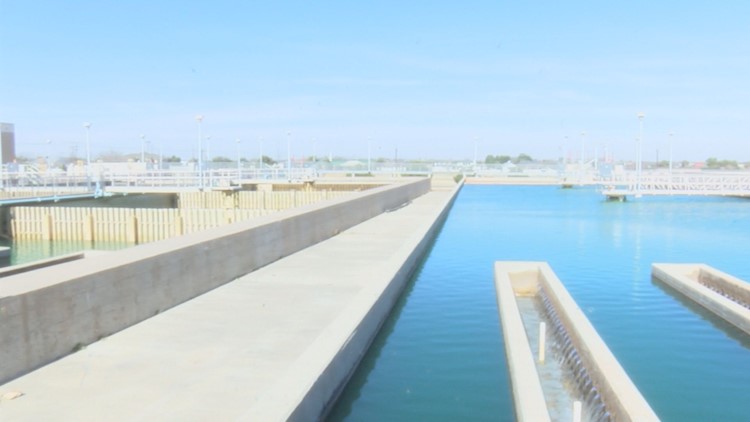(KWES) - "Midland water is safe to drink. We meet all state standards and we are a superior water system," says Laura Wilson, the Director of Utilities for the City of Midland.
She said on one hand she appreciates the Environmental Working Group for opening the conversation about water quality, but on the other she doesn't fully agree with their approach with their "Tap Water Database."
"I feel it is a shortcut made to catch people's attention," said Wilson.
As for the contaminant level limits set by the government run Environmental Protection Agency's, she believes they're sound.
"I think they're reasonable. I think if you drank water that met all the limits, you could be comfortable the water is safe," said Wilson.
As for the city's long list of contaminants, "water goes through dirt and when water goes through dirt, it's gonna pick up whats in the dirt," said Wilson.
Those contaminants that don't occur naturally, come from water treatment process that Wilson says already have your health as a priority.
"Midland's constituents, you can't remove them in a feasible manner," said Wilson.
A sentiment that was shared by Thomas Kerr, the City of Odessa Utilities Director.
"Some of the other chemicals here are by products of treatment, which we add chlorine to the water. We have to disinfect the water so we make sure nothing grows in it and gets you sick," said Kerr.
The City of Odessa's contaminants list was nearly identical to the city of Midland's.
"There isn't one that is a real problem," said Kerr.
That's because, he too, trusts the standards they operate under.
"The government has set standards that we feel are conservative. They have done analysis for decades and they continue to monitor them," said Kerr.
As for the EWG's stricter health guideline, "I think at some degree they could have a very heightened standard that they are looking at for water quality that you could achieve," said Kerr.
Though he believes there's a lot of unanswered questions tied to the non-profit organization's presentation.
"Because the direct contact of a chemical causing cancer is not really known," said Kerr.
Both directors said while they're confident in their water treatment processes, each agency has their eyes toward the future.
"It's an ongoing process we always look forward though to new regulations that are coming into play and new technology that is available so we can improve what we have," said Wilson.
"Working to lower all of these because the Reverse Osmosis process would improve our water quality so much. It would lower all of these," said Kerr.
Kerr says the city of Odessa is currently in a testing phase for a Reverse Osmosis installation.
They expect to propose the project to the city council in the next few months.
For a full list and more information about those contaminants, visit the EWG's tap water database at https://www.ewg.org/tapwater/index.php#.WneoZa6nEdU



